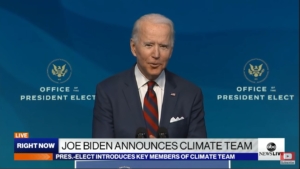J-E-T-S, JETS JETS JETS
Here’s What You Need to Know
The new Administration has used many of its first days promulgating several major executive actions, offering up numerous photo ops of President Trump surrounded by his senior staff signing these documents in the Oval Office. The problem is that these executive actions appear to be written as broad statements and souped-up press releases – not orders that have the force of law – to push a narrative that the President is taking action on his campaign promises while appearing as presidential as possible.
Beyond whatever debate there may be on the substance of these policies, the hasty preparation and lack of appropriate staffing of these executive actions are causing long term problems for the Administration:
- Lack Of Coordination Outside Of White House = Implementation Chaos: It appears none of the federal agencies and departments impacted by these executive actions are being consulted prior to their drafting and release, which leaves those agencies and departments, teeming with civil servants that may not be thrilled with the policy directives to begin with, struggling to quickly understand and comply with these orders. This leads to things like the confusion over whether the President’s order on refugees and immigration applied to U.S. green card holders.
- Lack Of Coordination Inside The White House = Unforced Errors And A Poorly Served President. The executive orders are reportedly being drafted by senior White House advisor for policy Steven Miller and White House chief strategist Steve Bannon, both of whom were key messaging strategists on the campaign. But, other senior staff with important roles to ensure the success of presidential actions are not being included in the process, leading to unforced errors. Miller and Bannon’s ownership of the executive actions suggests the measures are being used more for publicity than policy. And while these actions may win them halleluiahs from the choir, they undermine the President’s long-term objectives.
- Lack Of Buy-In From Capitol Hill = Frayed Relations On Other Agenda Items: The White House’s poor execution of the President’s executive action on immigration and refugees was also due to their failure to alert Congressional leadership of the hastily drafted and released executive actions. This cost them a smooth roll-out of the policy as Congressional Republicans were caught flat-footed by the measure and were not coordinated in their response to the President’s move. Continuing these run-and-gun tactics with regards to executive action will have serious long-term consequences, which will manifest as the President seeks support on the Hill for his nominees and policy agenda. Even if key Republicans in Congress are not consulted on the content of executive actions, failing to loop them in prior to the document’s release leads to poor messaging overall. The President just announced a Supreme Court nominee and a litany of other nominations he will need help from Congressional leadership to shepherd through, and this stumble in the relationship between either end of Pennsylvania Avenue could put constraints on that help.
Executive actions are an important and powerful tool of the presidency. But the new Administration seems to be using them more casually than has previously been seen. Whether this is intentional or not, it seems to have created more controversy and confusion than it is worth. It remains to be seen whether or not these tactics will change in coming weeks as the freshly minted White House staff gets their bearings.
Subscribe to Receive Insights
"*" indicates required fields
News You Can Use
HEDGE FUNDS FOLLOW THE JETS, LITERALLY
Hundreds of millions of dollars were made last week by several hedge funds after pharmaceutical giant Johnson & Johnson agreed to buy Actelion Ltd., a Swiss-based biopharmaceutical company. Hedge funds are known for tracking all kinds of information to inform their investments; in this case it came down to tracking the flight history of Johnson & Johnson’s corporate jet, which spent most of the week prior to the deal sitting at an airport near the Actelion headquarters in Basil, Switzerland. The Swiss company was already considered one of the top-five long bets for hedge funds speculating on the success or failure of mergers and acquisitions. But, analysts’ tracking of the J&J Gulfstream jet shows how the creative application of competitive intelligence can lead to windfalls on Wall Street.
FRENCH ELECTION BLOWN WIDE OPEN
France’s incumbent center-left president Francois Hollande announced late last year he would not seek another term. Now one of the leading candidates in France’s upcoming Presidential election, center-right candidate Francois Fillon, is stumbling badly as he faces criticism over using public funds to employ members of his family while serving as a Senator. With the election set to occur on April 23rd, followed by a runoff to occur May 7th, right-wing nationalist Marine Le Pen appears to be the favorite to win the first round of voting. Fillon had been seen as a likely candidate to defeat Le Pen in the runoff, but he has already declared he will formally drop out of the race if the investigation into this scandal becomes a formal inquiry. Whether Fillon drops out or not, this scandal has almost certainly hurt him in the polls and could leave the French presidential race wide open for another international populist upset. European political observers have pointed out that a Le Pen victory would have dire consequences for the European Union, straining the relationship between Brussels and a key EU leader nation. This situation could have been avoided had Fillon commissioned a vulnerability study to understand the scrutiny that comes with running for higher office.
INDIA’S DEMONETIZATION TROUBLES
In November of last year, the Indian government introduced a demonetization plan recalling existing 500 and 1,000 rupee notes and replacing them with new 500 and 2,000 rupee notes. The subsequent cash shortage brought on by the Indian government’s failure to cycle in new bank notes as they recalled the old, has plunged the nation’s vital manufacturing industry into a drastic slowdown. The manufacturing industry’s reliance on cash currency to pay low wage workers has paralyzed factory owners, likely leading to dwindling consumer confidence in the nation and stunting economic growth. The troubles in the Indian economy have reverberated throughout Asia, as the Indian government’s inability to effectively manage the demonetization process has led to neighbors like Nepal to turn to China for their economic and security matters. For example, Nepal previously sought to stabilize their economy with a purchase of six billion rupees, but with India failing to deliver the currency in recent months, Nepal has turned to China to print and deliver Nepali rupees. While India is still projected to remain one of the fastest growing economies in the world, the short term negative impacts of the demonetization plan can cause geopolitical shifts along with economic ones.
THE DELETE UBER DILEMMA
In the wake of President Trump’s executive order suspending immigration from seven terror-afflicted countries, Uber’s refusal to join an anti-Trump strike policy from New York taxi drivers spurred a sudden and viral #DeleteUber movement. It is not necessarily uncommon for businesses to be boycotted or criticized for their political positions or activities. But efforts to punish businesses for political inaction seems to be a new phenomenon. Uber’s CEO Travis Kalanick eventually criticized the Administration’s policy. But, the situation presented the company with an interesting catch-22: whether to take a political stand against the President in order to satisfy many of their customers’ rage against Trump, or to remain politically neutral in an effort to avoid offending an Administration they will need to work with on a variety of regulatory matters over the next four years.
THE RUSH TO JUDGE
Liberal activist groups and Democrats have moved quickly to attack President Trump’s Supreme Court nominee, Neil Gorsuch, but in their haste it seems many have written the attacks before checking whether they actually fit the facts of Gorsuch’s record. For instance, the liberal super PAC American Bridge, released a full report in which they claimed Gorsuch was, “a threat to privacy,” for allegedly writing a legal opinion that allowed police to ignore a “no trespassing” sign. In fact, Gorsuch had written a dissenting opinion on the case, arguing in favor of privacy rights. Similarly, the Center for American Progress criticized Gorsuch’s background on criminal justice issues, but missed his 2006 speech on criminal justice reform and his dissenting opinion criticizing a police officer for using excessive force on a high school student. It is no surprise that these groups are picking apart Gorsuch’s record, but considering that he has been listed as a likely pick for months, it is surprising that the messaging wasn’t better researched beforehand.
Mark Your Calendar
Thursday, February 23 – Sunday, February 26: DNC’s Winter Meeting where a new Democratic Party Chair will be elected



